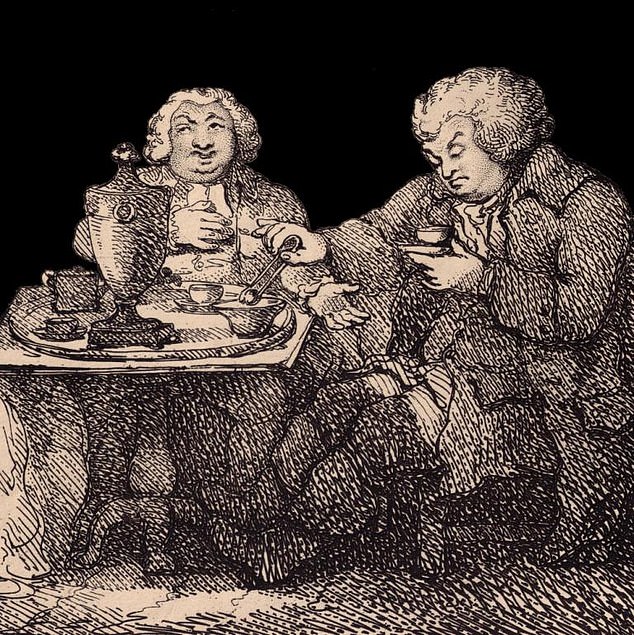It's believed {that a} good cup of tea works wonders after a busy day, however new analysis suggests the beverage could have saved lives again within the 1700s.
Specialists discovered that the rise in reputation of tea was linked to a drop in mortality charges in England throughout the Industrial Revolution, when hygiene circumstances have been poor.
They imagine it’s because boiling the water to make a cup of tea kills micro organism and parasites that trigger lethal ailments like dysentery.
Professor Francesca Antman, from the College of Colorado Boulder, mentioned: 'The cool factor about this case is that it occurred after we didn't know the significance of fresh water.
'Proof means that tea turned inexpensive to nearly everybody in England within the late 1780s throughout the Industrial Revolution.

Tea is a large favorite within the UK, the place over 100 million cups are consumed every day

Samuel Johnson was one of many earliest proponents of the English cuppa, describing himself as 'an inveterate and unashamed tea-drinker'.
'Inhabitants density was growing, cities have been actually rising, folks have been being crammed from one place to a different. This could actually have been a interval after we would see a really massive enhance in mortality. However we see a putting decline in mortality, which might be defined by the introduction of tea and, extra particularly, the boiling of water.'
The well-known English author Samuel Johnson was one of many early proponents of tea consuming.

Economics professor Francesca Antman studied knowledge from greater than 400 English parishes, taking a look at mortality charges earlier than and after tea turned standard
In 1757 he described himself as 'a impolite and unrepentant tea-drinker … whose kettle by no means has time to chill; who cheers the night with tea, consoles midnight with tea, and welcomes the morning with tea.'
Dysentery, a critical gastrointestinal illness, triggered many deaths within the 1700s, when it was often known as the 'bloody flux.' In some elements of Europe, as much as 90 p.c of deaths throughout the worst outbreaks have been as a result of dysentery.
Professor Antman studied knowledge from over 400 parishes in England, taking a look at mortality charges earlier than and after tea turned standard and inexpensive.
The evaluation in contrast areas based mostly on water high quality, which was estimated based mostly on geographical traits, such because the variety of operating water sources or elevation.
He mentioned: 'In areas the place you’d count on the water high quality to be naturally poor, you get a giant drop in mortality when the tea arrives.
'It's not that the water itself is pure or compliant with the consuming water requirements that we have now at present. However you're seeing that areas that ought to have benefited extra are benefiting extra as a result of they’ve began boiling water to drink tea.'
The researcher mentioned the huge quantity of historic knowledge out there in Britain made his research potential.
'Only a few locations on the planet have knowledge like this out there,' she mentioned. 'This wouldn't have been potential with out the tireless efforts of demographers and historians who studied parish data in England and principally created these knowledge collection that I used to be capable of analyze.'
Entry to scrub water continues to be a battle in lots of growing nations.
Professor Antman mentioned folks's ardour for tea in England was an instance of how a easy behaviour change – equivalent to boiling water earlier than consuming – might have an enormous constructive impression.
“Folks modified their behaviour, not due to any exterior affect or strategies about wholesome habits or clear water, however just because they needed to drink tea,” he mentioned.
'It is a nice instance of how a inhabitants adopted a wholesome behaviour with none outsider making an attempt to vary the tradition or customs, however as a result of they needed to undertake that observe from inside.
'That is one thing we will contemplate and presumably attempt to emulate after we contemplate interventions geared toward enhancing well being sooner or later, together with these associated to water.'


